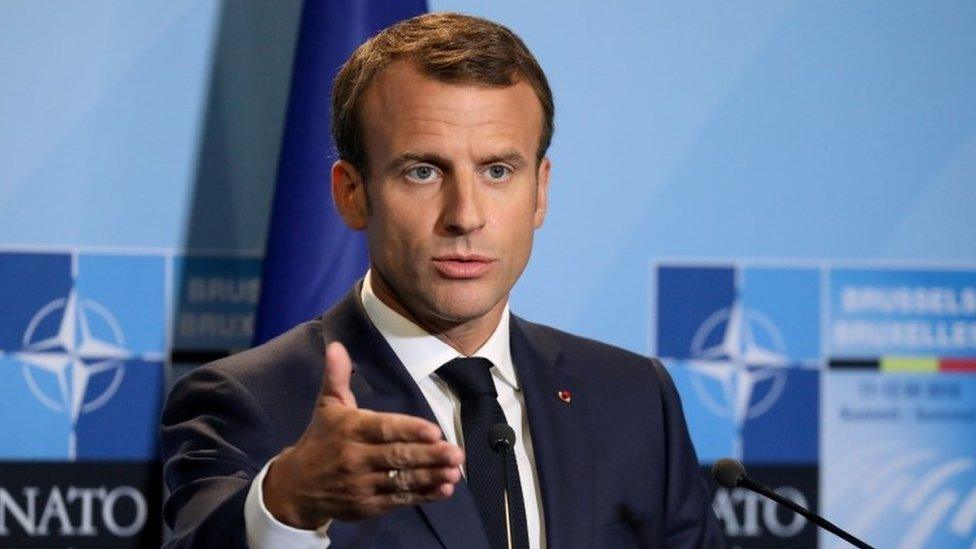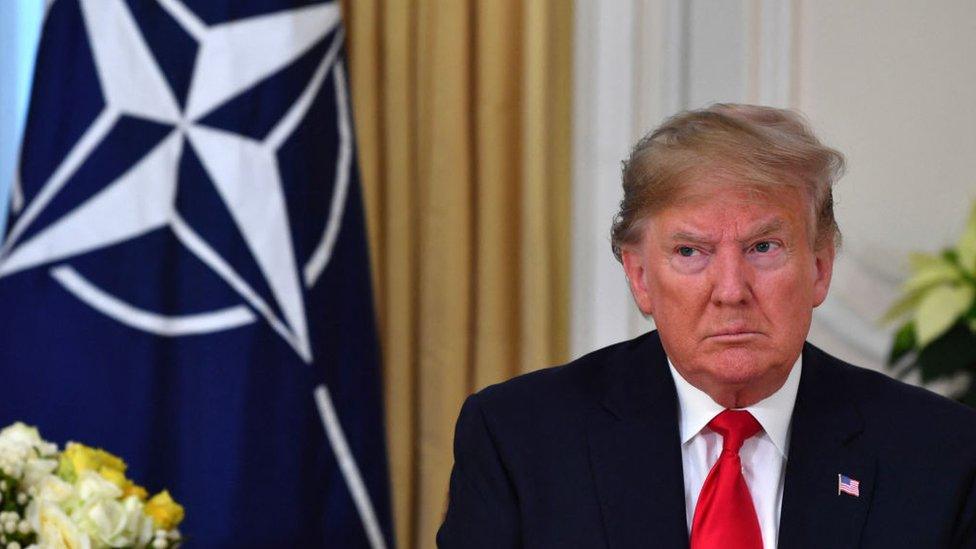Nato summit: Divisions exposed ahead of meeting
- Published
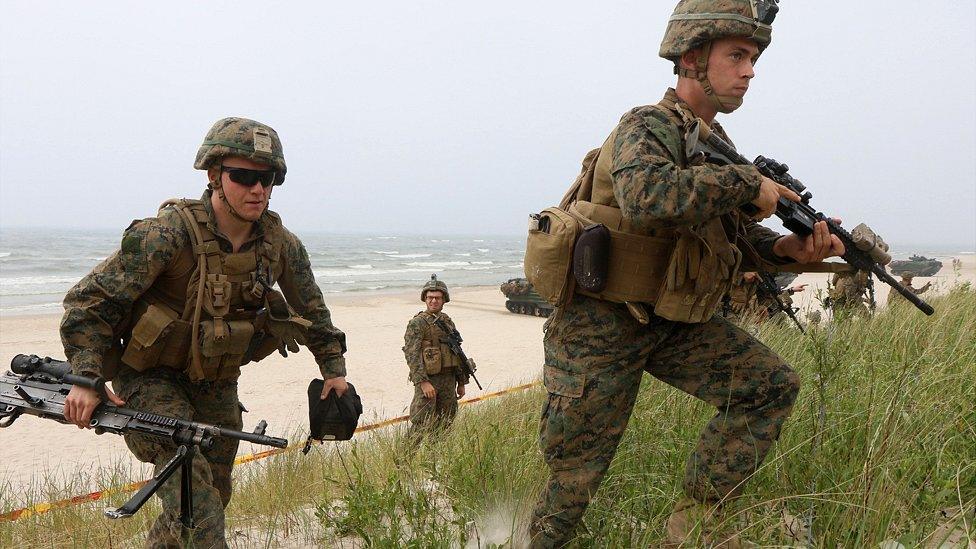
US troops on a Nato exercise in Lithuania in June 2018
Turkey has said it will oppose a Nato defence plan for Baltic countries, exposing tensions in the alliance ahead of a summit for its 70th anniversary.
President Recep Tayyip Erdogan wants the military bloc to recognise the groups Turkey is fighting as terrorists but members are reluctant to do so.
Last month, the French president angered some countries by suggesting the alliance is "brain dead".
The UK prime minister is set to call for unity at the meeting near London.
As host of the two-day meeting, Boris Johnson is expected to reiterate the importance of Nato staying united, calling it "the cornerstone of Euro-Atlantic security" that helps "keep a billion people safe", his spokesman said.
Tensions have grown since the election of US President Donald Trump, who has repeatedly complained that Europe's Nato countries are not contributing enough to the bloc, created to counter the threat of post-World War Two communist expansion.
The summit takes place as President Trump faces an impeachment inquiry at home and eyes a re-election campaign next year. At the same time, the UK will hold a general election next week amid its complicated Brexit process.
Nato members pledge to come to the aid of one another should any of the 29 allies come under attack.
What are the divisions about?
Ahead of his departure from Ankara to London, Mr Erdogan said Turkey would not approve a plan to defend Poland, Lithuania, Latvia and Estonia in the event of a Russian attack unless Nato recognises the Kurdish YPG militia as terrorists.
The YPG lead the Syrian Democratic Forces (SDF), key allies of the US-led coalition against the Islamic State group in Syria. In October, Turkey launched an operation in Kurdish-controlled areas of northern Syria to create a "security zone" along its border.
"If our friends at Nato don't recognise as terrorist organisations those we consider terrorist organisations... we will stand against any step that will be taken there," he said about the plan.
Nato explained in 80 seconds
That military action deepened fractures between Turkey and other Nato members and took place after President Trump controversially pulled US forces out of the region reportedly without consulting allies.
In an interview last month, French President Emmanuel Macron described Nato as "brain dead", stressing what he saw as a waning commitment to the transatlantic alliance by its main guarantor - Washington.
Last Friday, Mr Erdogan hit back, suggesting that Mr Macron was in fact the one who was "brain dead". He accused him of "a sick and shallow understanding" of terrorism. President Macron had also angered Turkey by in November hosting an official from the SDF.
Both Mr Macron and Mr Erdogan will be attending the Nato event and will be hosted, alongside German Chancellor Angela Merkel, by Mr Johnson at Downing Street on Tuesday.
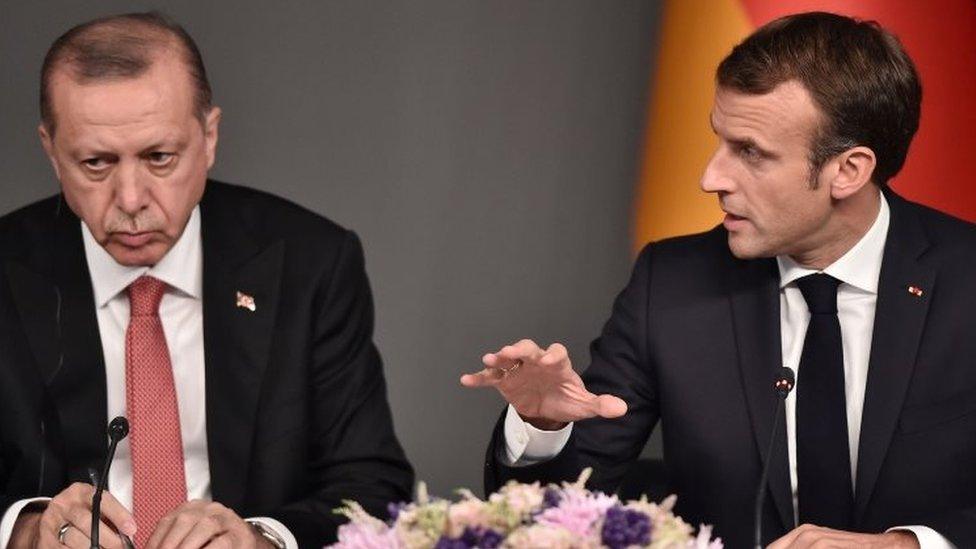
Will Mr Erdogan (left) and Mr Macron try to soothe the row?
Speaking ahead of the meeting, Mr Trump said Mr Macron's statement was "very, very nasty", adding: "You just can't go around making statements like that about Nato. It's very disrespectful".
He arrived in the UK on Monday ahead of a reception to be hosted by the Queen at Buckingham Palace on Tuesday evening. Mr Trump is set to hold separate talks with the German and French leaders, and Nato's secretary-general.

A major problem for Nato

Turkey is posing a major and developing problem for Nato; a problem that if not resolved, could test the very boundaries of its membership.
It is effectively holding hostage a response plan for the rapid reinforcement of the Baltic region - which must be approved by all 29 Nato members - until it gets what it wants in its own region.
Turkey wants all other Nato countries to regard Kurdish separatist groups in Turkey as terrorists. This would effectively take Nato into domestic security matters which most allies see as none of their business.
Add to this Turkey's unilateral actions in Syria; President Erdogan's recent row with his French counterpart Emmanuel Macron over the Kurds; and Turkey's purchase of a sophisticated Russian air defence system - an extraordinary step for a key Nato player - and you are well on the way to a full-blown crisis between Ankara and the alliance.

What is Nato?
The North Atlantic Treaty Organisation is the world's most powerful regional defence alliance
It was set up in 1949, after World War Two, amid anxiety at Soviet expansion
It was founded on the principle of collective defence between allies
Originally had 12 members, but now has 29

What will Boris Johnson say?
"The PM's position is that Nato is the most enduring and successful alliance in military history and that it continues to adapt to the evolving threats that we face," the prime minister's spokesman added.
"The PM will emphasise that all members must be united behind shared priorities so Nato can adapt to the challenges ahead."
Another key division is over the countries' contributions. Nato estimates for 2019 show there are now eight countries - in addition to the US - meeting the target agreed by all Nato members to spend 2% or more of their gross domestic product (GDP, a measure of economic output) on defence.
Mr Stoltenberg said on Friday that by 2020, European allies and Canada would have invested $130bn (£100bn) more since 2016, the year President Trump was elected.
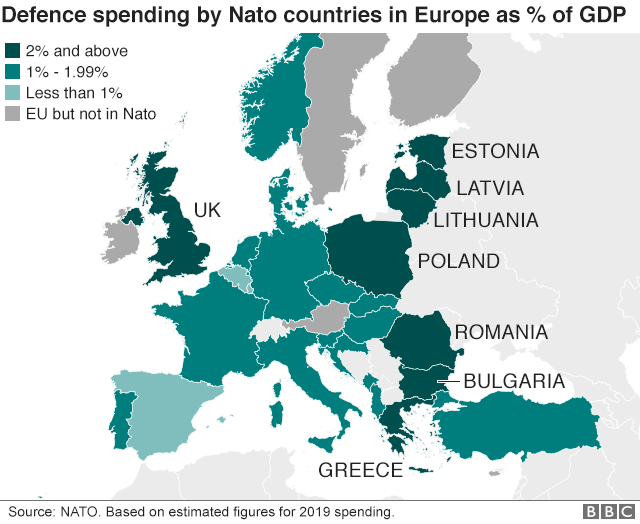
- Published4 September 2014
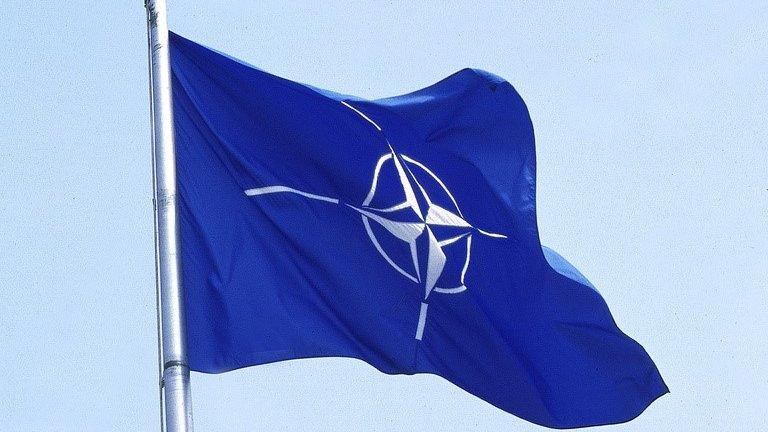
- Published2 December 2019
- Published28 November 2019
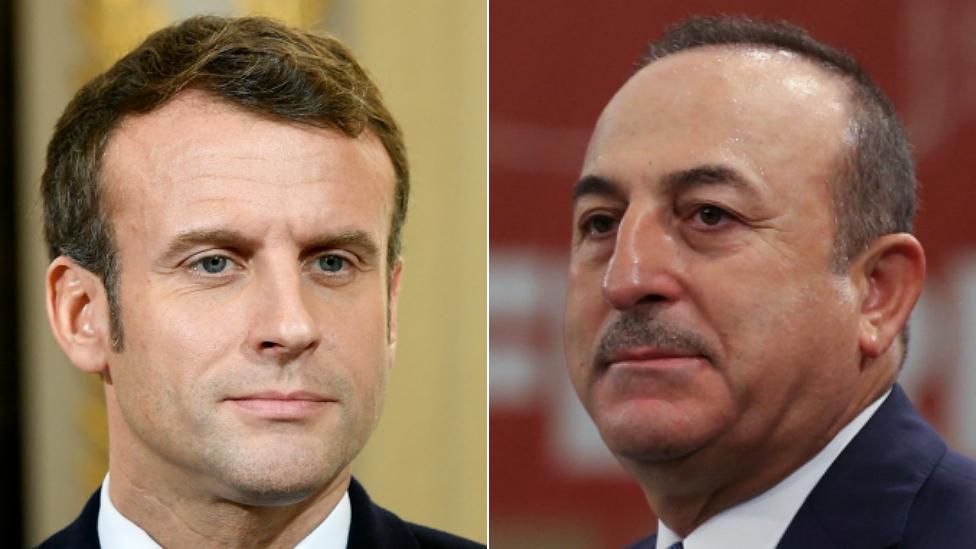
- Published11 July 2018
- Published7 November 2019
